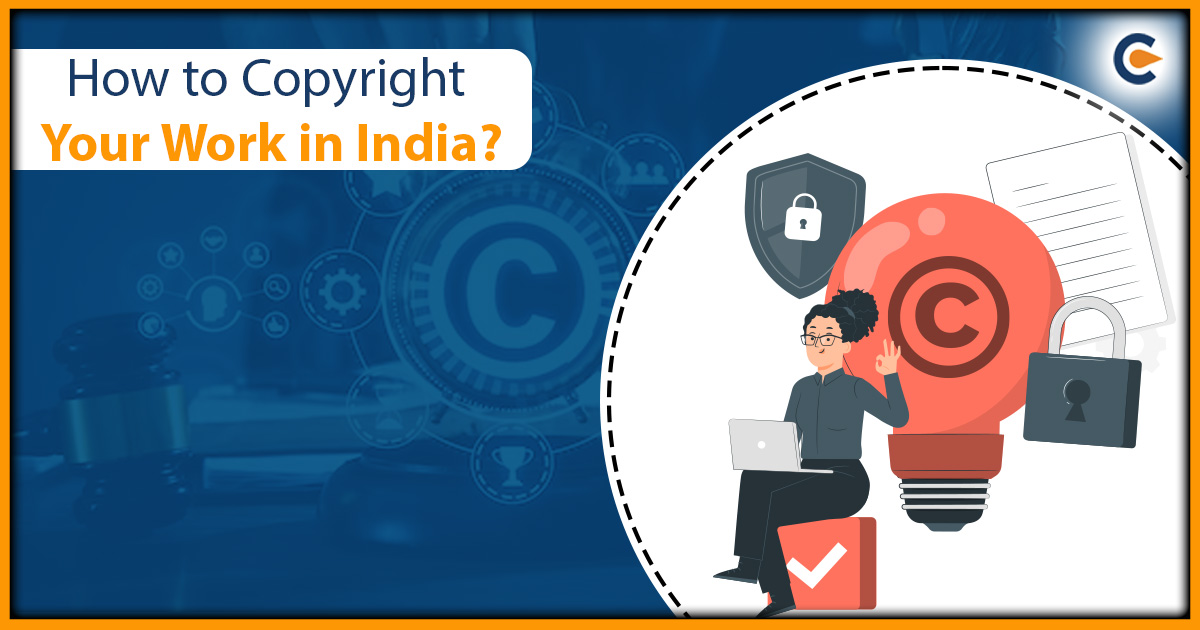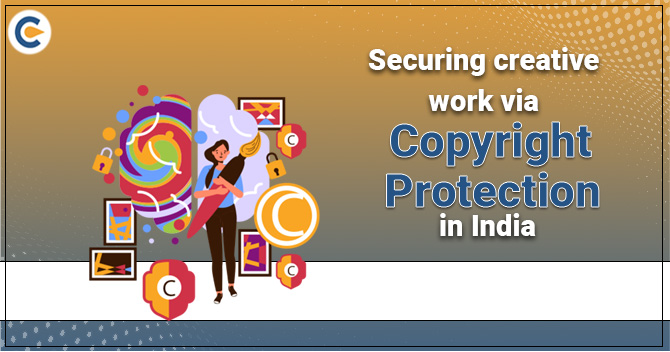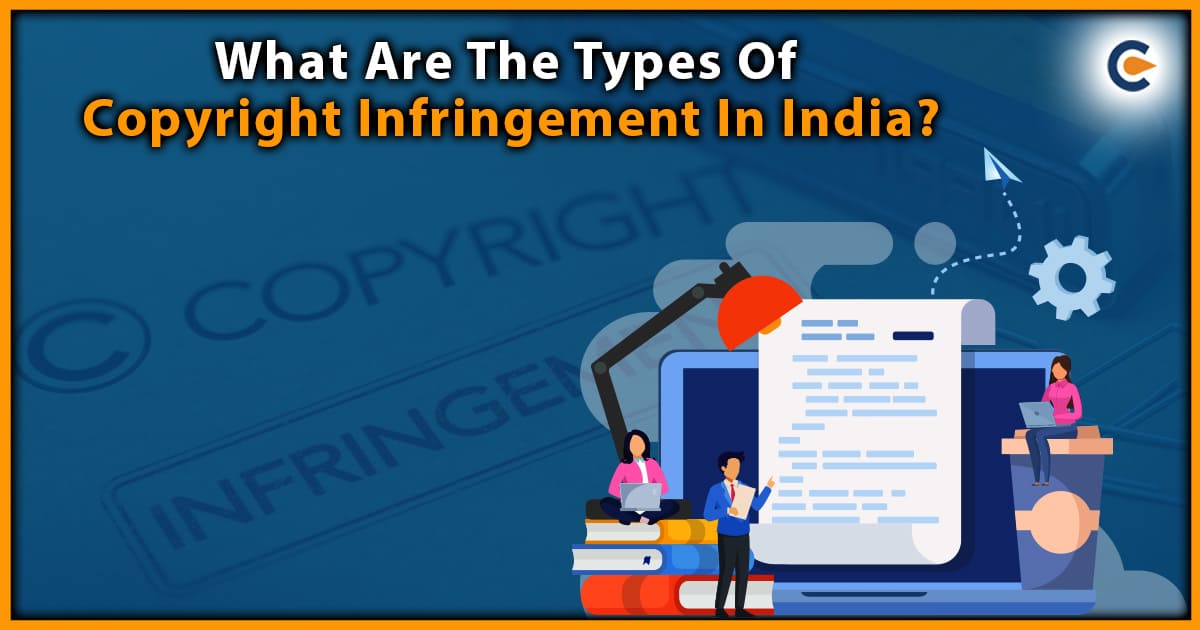Copyright is a constant in creative works, much like the sun and the moon. It gives authors and artists the exclusive right to control and decide how their works are used, shared, and enjoyed. In today’s digital age, Copyright has taken on new significance, as works can be copied and distributed with just a few clicks. In India, the Copyright Act of 1957 provides the legal framework for protecting and enforcing Copyright. With its provisions, Copyright serves as a shield for creators, allowing them to protect their works and be duly compensated for their efforts.
What is Copyright?
Copyright refers to the exclusive right given to the creator of an original work to regulate the use, distribution, and reproduction. The main aim of Copyright is to promote creativity and innovation by allowing creators to benefit monetarily from their intellectual efforts. Copyright protection differs from country to country but typically applies to literary, musical, artistic, and dramatic works, computer programs, and other expressive works.
Copyright law gives the holder the right to prevent others from reproducing their original work without permission and control how it is used and distributed. Copyright protection can last for several years, depending on the country. After this period, the work often becomes public domain, meaning anyone can use it freely.
In today’s digital age, Copyright has become more complex as online platforms make it easy to share digital content. Copyright infringement, where someone uses someone else’s copyrighted work without permission, has become standard on the internet, leading to legal disputes between creators and those who use their work without permission.
Thus, Copyright is essential for protecting the rights of creators and promoting innovation and creativity. It enables creators to profit from their intellectual works and controls their use and distribution. As technology evolves and the internet becomes more central to our lives, copyright law will continue to play a vital role in protecting intellectual property rights.
Applicability of the Copyright of Your Work in India
Copyright is a category of intellectual property protection that grants an exclusive right to the creator of an original work. The Copyright Act of 1957 provides the legal framework for copyright protection in India. The scope of Copyright includes dramatic, literary, musical and artistic works, as well as sound recordings and computer software. The copyright owner has the unique right to remake, adapt, distribute, publicly display, and perform their work.
Copyright protection in India is not automatic and requires registration to enforce. Copyright protection lasts the author’s lifetime plus 60 years after death. The Indian copyright laws also provide for fair use exceptions, which allow for specific uses of copyrighted work without the owner’s permission, such as criticism, commentary, news reporting, teaching, scholarship, or research.
Copyright infringement is a severe offence in India, and the copyright owner can take lawful action against anyone who violates their rights. The remedies available for copyright infringement include injunctions, damages, accounts of profits, and delivery of infringing copies for destruction.
Overall, the copyright laws in India provide comprehensive protection to creators of original works and ensure that they can profit from their creations while promoting creativity and innovation in society.
How to Copyright your work in India?
Copyrighting your work is essential in India as it provides legal protection against plagiarism, unauthorized usage, and intellectual property infringement. Copyright registration also allows you to monetize your creations and gain recognition as the owner of your work. In this note, we will discuss the steps to copyright your work in India.
The process of the Copyright of your work in India involves the following steps:
- Creation of the work: The first step is to create the work. The work can be in any form, such as literary, artistic, musical, or cinematographic.
- Determine the Category of your Work: Copyright in India covers many categories, including literary and artistic works such as books, articles, paintings, sculptures, music, and films, among others. Before you register for Copyright, it is crucial to determine the category under which your work falls. The category is vital as the registration process differs slightly for each type of work.
- Identification of the owner: The next step is to identify the owner of the work. It is usually the person who has created the work, but sometimes, it can be any company or any organization.
- Gather Documentation: Once you have identified the category of your work, you need to obtain essential documents to begin the copyright registration process. These include a copy of the work you want to copyright, proof of authorship, and proof of payment of the application fee.
- Applying: The owner of the work must file an application for copyright registration with the Indian Copyright Office. The application must contain details about the work, such as the title, description, and creation date.
- Examination of the application: Once the application is filed, the Indian Copyright Office examines the application to secure that it meets the requirements for copyright registration.
- Wait for Confirmation: You need confirmation from the Copyright Office after submitting your application. The confirmation may take a few weeks or months, depending on the workload of the Copyright Office.
- Publication of the Copyright: If the application is approved, the Indian Copyright Office will publish the Copyright in the Indian Copyright Journal.
- Issuance of the certificate: After the Copyright is published, the Indian Copyright Office issues a certificate of registration to the owner of the work.
Once the work is copyrighted, the owner has the exclusive right to use, perform, reproduce, and distribute the work. Only one person can use the work with the owner’s permission.
Documents Needed to the Copyright of your work in India
The following documents are required to obtain copyright protection for your work in India:
- Application for Copyright Registration: This is a form that can be filled out online or offline, which includes details about the applicant and the work being registered. The application form can be downloaded from the website of the Copyright Office in India.
- Identity Proof: A copy of the applicant’s identity proof, such as a PAN card, passport, or Aadhar card, must be attached to the application.
- Address Proof: A copy of the applicant’s address proof, such as an electricity bill, driving license, or Aadhar card, must be attached to the application.
- Proof of Authorship: Any proof that establishes the work’s authorship, such as original manuscripts or drafts, publication agreements, or other relevant documents, must be attached to the application.
- Fee: The prescribed fee must be paid along with the application, which can be paid offline or online.
It is crucial to point out that the records required may differ depending on the category of work being registered. For instance, a copy of the original artwork along with the application must be attached if it is an artwork.
Benefits of Copyright Registration
Copyright registration in India provides several benefits, including:
- Legal Protection: Copyright registration protects against unauthorized use, plagiarism, and infringement of your work.
- Proof of Ownership: Copyright registration serves as proof of ownership of your work. It provides you with a legal document that you can use to prove that you are the original creator of the work.
- Monetization: Copyright registration lets you monetize your work by selling or licensing it to others. You can earn royalties for using your work, generating a significant income stream.
- Recognition: Copyright registration gives you recognition as the owner of your work. It allows you to establish your brand and reputation as a creator in your field of expertise.
What are the Acts and Legal Provisions related to the Copyright of your work in India?
The Indian Copyright Act of 1957 is the principal Act that governs copyright protection in India. Some of the key provisions of the Act are:
- Ownership of Copyright: Under Section 17 of the Act, the author of a work is the first owner of the Copyright unless the work is made in the course of employment.
- Registration of Copyright: Although registration is not mandatory in India, it is highly recommended as it provides legal protection and evidence of copyright ownership. The Copyright Office under the Ministry of Commerce & Industry[1] registers copyrights.
- Duration of Copyright: The duration of Copyright varies depending on the type of work. For literary, dramatic, musical and artistic works, the Copyright lasts for the lifetime of the author and 60 years from the beginning of the calendar year next following the year in which the author dies. For cinematograph films, sound recordings and photographs, the term is 60 years from the beginning of the calendar year next following the year in which the work was first published.
- Infringement of Copyright: Section 51 defines copyright infringement as any act without the copyright owner’s permission. Such acts include reproduction, adaptation, distribution, performance, communication to the public, and making translations.
- Remedies for copyright infringement: The remedies available for copyright infringement include injunctions, damages, accounts of profits, and delivery of infringing copies to the copyright owner.
- Fair use: The Act provides for certain exceptions to copyright infringement, such as fair use for research, criticism, review, news reporting, and education.
Overall, the Copyright Act provides a robust legal framework for protecting the intellectual property of creators in India.
Criticism of the Copyright of your work in India
Like any other legal mechanism, Copyright in India has its fair share of criticisms:
- One of the major criticisms is that the copyright period of 60 years after the author’s death is too long, especially in the current digital age, where information is freely available and shared at the click of a button. This long copyright period limits future generations’ freedom of expression and creativity.
- Another criticism is that the copyright law is not fully aligned with international standards, which makes it difficult for Indian authors and artists to protect their works abroad. The copyright law also lacks adequate provisions to address issues like fair use and the public domain.
- Another criticism is the lack of enforcement of the law in India, which leads to unauthorized reproduction and distribution of copyrighted works.
What are the Landmark Case Laws related to the Copyright of your work in India?
- R.G. Anand v. M/s. Delux Films (1978) AIR 1978 SC 1613 – This landmark case established the concept of fair use in copyright law in India.
- Eastern Book Company v. D.B. Modak (2008) AIR 2008 SC 368 – This case established that facts and information in work are not covered by Copyright and can be freely used by anyone.
- Entertainment Network (India) Ltd. v. Super Cassette Industries Ltd. (2008) AIR 2008 SC 1737 – This case established the concept of intermediary liability, stating that platforms hosting user-generated content can be held liable for copyright infringement.
- ICC Development (International) Ltd. v. Arvee Enterprises (2003) AIR 2003 SC 1177 – This case established that broadcasting rights are separate from Copyright and can be licensed separately.
- Indian Performing Right Society Ltd. v. Eastern Indian Motion Pictures Association (1977) AIR 1977 Cal 47 – This case established the licensing regime for music in India, creating the Indian Performing Right Society as the authorized body to issue licenses for music performances and usage.
Conclusion
In conclusion, copyright registration is crucial to protect your creations in India. Copyright registration involves determining the category of your work, gathering documentation, preparing your application, submitting your application, and waiting for confirmation. Copyright registration provides several benefits, including legal protection, proof of ownership, monetization, and recognition. Therefore, it is essential to copyright your work to safeguard your intellectual property and realize its full potential.
Read our Article: Copyright Registration In India – Process, Requirements And Duration











